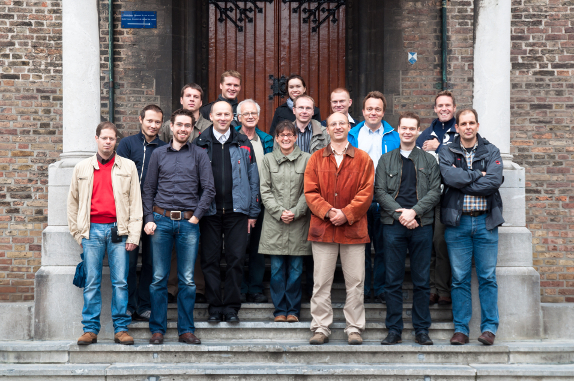The MIRABEL Consortium
The Mirabel Consortium consists of the following 8 members. Please, click on the [read more] links for the respective partners to see their full description and contact details.

Coordinator: SAP AG (Germany)
SAP Research serves as the coordinator of the MIRABEL project and is a research affiliate of SAP. SAP has grown to become the world's leading provider of e-business software solutions. With 12 million users, 96,400 installations, and more than 1,500 partners, SAP is the world's largest inter-enterprise software company and the world's third-largest independent software supplier, overall. [read more]
Aalborg Universitet (Denmark)
Aalborg Universitet is a Danish public university. The university's core business is education, research, and innovation within the humanities and the social, technical, medical, and natural sciences. The university has approximately 14,000 students and 2,000 employees. Some 5,500 students are enrolled in the Faculties of Engineering, Science and Medicine. [read more]
Centre for Renewable Energy Sources (Greece)
The Centre for Renewable Energy Sources (CRES) is the Greek Centre for Renewable Energy Sources (RES), Rational Use of Energy (RUE) and Energy Saving (ES). CRES has been appointed as the national co-ordination centre in its areas of activity by law. CRES was founded in September 1987. It is a public entity, supervised by the Ministry of Development, General Secretariat of Research and Technology, and has financial and administrative independence. [read more]
EnBW Energie Baden-Württemberg AG (Germany)
With some five million customers, EnBW Energie Baden-Württemberg AG, with its headquarters in Karlsruhe, is the third largest energy company in Germany. In 2006, EnBW generated annual sales of approx. €14,800 million with around 20,000 employees. Core activities focus on the segments of electricity, gas as well as energy and environmental services. [read more]
INEA (Slovenia)
The company INEA was founded in February 1987 by the Jožef Stefan Institute as one of the institute's projects to promote transfer and application of research achievements of the Institute in the fields of industrial internal energy management and control of industrial processes. INEA is a member of the Technology Park Ljubljana, the core of which represents the spin-off companies of the Jožef Stefan Institute and start-ups from the University of Ljubljana; INEA is also the leading company of the Technology Network Process Control Technology, established in 2004. [read more]
Jožef Stefan Institute (Slovenia)
The Jožef Stefan Institute, founded in 1949, is the leading Slovenian institution for pure and applied research in natural sciences and technology. At present, it employs about 800 people, of which nearly 450 comprise research staff. In view of its activities and status, the Jožef Stefan Institute plays the role of a national institute, complementing the role of the universities and bridging the gap between science and applications. It also enjoys international recognition, having participated in dozens of FP6 and FP7 projects. [read more]
Technische Universität Dresden (Germany)
The Technische Universität Dresden (TU Dresden; internationally also known as Dresden University of Technology) was founded in 1828 and ranks among Germany's oldest technical-academic institutions of education. 14 faculties cover a wide range of fields in science and engineering, the humanities, social sciences and medicine. With more than 30,000 students and approximately 4,000 permanent faculty members - including more than 400 professors - TU Dresden is the largest university in Saxony. Emphasis has always been put on interdisciplinary research and close cooperation with local industries. [read more]
TNO (Netherlands)
The Netherlands Organisation for Applied Scientific Research (TNO) is a non-profit research or-ganisation. Established in 1932, TNO's public mission has been laid down in a special law: to support industry and society in general in transforming knowledge into products and processes of economic and societal value. TNO is fully independent and acts as an interface between science and the market. TNO has about 4,700 employees working in five core areas, including Information and Communications Technology. Currently, this division comprises 320 highly qualified scientific and technical staff. [read more]
AFNOR (France)
AFNOR is a Non Profit Association under the French law and a national member of the European recognized standardization organization CEN. CEN is an NPO in the form of a Non Profit Association under the Belgium law. [read more]